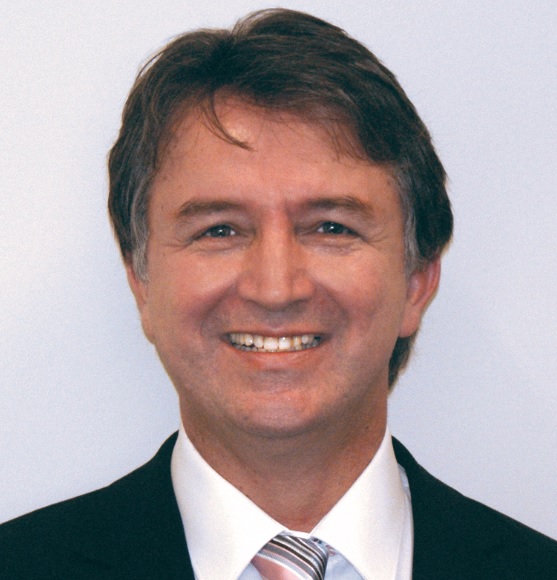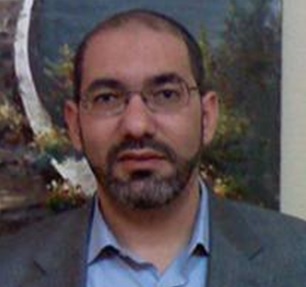

Innovation Theme
Forum
Machine Intelligence Innovations for Future Smart Life
Time: Wednesday
February 17, 10:00-12:00
Organizer and Moderator:
Khaled El-Maleh,
Senior Director, Qualcomm, USA
Panelists:
Li Deng, Partner Research Manager, Microsoft Research, USA (IEEE/ASA/ISCA Fellow)
Panos Nasiopoulos, Professor, University of British Columbia, Canada
(CAE Fellow)
Andreas Savakis, Professor, Rochester
Institute of Technology, USA
Anthony Vetro, Deputy Director,
Mitsubishi Electric Research Labs, USA (IEEE Fellow)
Michael Wei, Director, Huawei, USA

Li Deng received the Ph.D. degree from the University of
Wisconsin-Madison. He was an assistant professor (1989-1992), tenured associate
professor (1992-1996) and Full Professor (1996-1999) at the University of
Waterloo, Ontario, Canada. In 1999, he joined Microsoft Research, Redmond, USA,
where currently he leads R&D of application-focused deep learning as Partner
Research Manager of its Deep Learning Technology Center. Since 2000, he has also
been Affiliate Full Professor at the University of Washington, Seattle. Prior to
joining Microsoft, he also conducted research and taught at Massachusetts
Institute of Technology, ATR Interpreting Telecom. Research Lab. (Kyoto, Japan),
and HKUST. He has been granted over 70 US or international patents. In the
general areas of audio/speech/language technology, machine learning, signal and
information processing, he has published over 300 refereed papers in leading
journals and conferences, and authored or co-authored 5 books including the
latest books on Deep Learning: Methods and Applications and on Automatic Speech
Recognition: A Deep-Learning Approach (Springer). He is a Fellow of the
Acoustical Society of America, a Fellow of the IEEE, and a Fellow of the
International Speech Communication Association. He served on the Board of
Governors of the IEEE Signal Processing Society (2008-2010). More recently, he
served as Editor-in-Chief for the IEEE Signal Processing Magazine (2009-2011),
as General Chair of the IEEE ICASSP-2013, and as Editor-in-Chief for the IEEE
Transactions on Audio, Speech and Language Processing (2012-2014). His technical
work since 2009 and leadership in industry-scale deep learning with colleagues
have created high impact in speech recognition and other areas of information
processing. The work by him and the team he manages has been in use in major
Microsoft speech products and in several text/data-related products, and is
recognized by the 2013 IEEE SPS Best Paper Award, Microsoft Goldstar and
Technology Transfer Awards. His recent research interests and activities have
been focused on deep learning and machine intelligence applied to large-scale
text analysis and to speech/language/image multimodal processing.

Panos Nasiopoulos earned his bachelorís degree in physics
from the Aristotle University of Thessaloniki (1980), Greece, and his bachelorís
(1985), masterís (1988), and Ph.D. (1994) degrees in electrical and
computer engineering from the University of British Columbia (UBC), Canada. He
is a professor with the Department of Electrical and Computer Engineering and
the former Director of ICICS and the Master of Software Systems at UBC. Before
joining UBC, he was the President of Daikin Comtec US and Executive Vice
President of Sonic Solutions. He is a registered professional engineer in
British Columbia, a fellow of the Canadian Academy of Engineering, and has been
an active member of the Standards Council of Canada, MPEG, ACM and IEEE.

Andreas
Savakis is Professor of Computer Engineering at the Rochester Institute of
Technology (RIT), where he served as department head of Computer Engineering
from 2000-2011. He received the B.S. (Summa Cum Laude) and M.S. degrees from
Old Dominion University and the Ph.D. from North Carolina State University, all
in Electrical Engineering. Before joining RIT he was with the Eastman Kodak
Research Labs. His research interests include object detection and tracking,
activity and expression recognition, scene understanding, mobile processing, and
high performance implementations. His research has generated over 100
publications and 12 patents. He is Associate Editor of the Journal of
Electronic Imaging. Andreas is the recipient of the IEEE Third Millennium
Medal, the NYSTAR Technology Transfer Award for Economic Impact, the IEEE Region
1 Award for Outstanding Teaching for contributions to Education in Computer
Engineering and Multimedia, the RIT Trustees Scholarship Award, and the American
Council on Education (ACE) Fellowship.

Anthony Vetro is a
Deputy Director at Mitsubishi Electric Research Labs, in Cambridge,
Massachusetts. He also manages a group that is responsible for research in the
areas of digital video coding and processing, information security, sensing
technologies, and speech/audio processing. He has contributed to the transfer
and development of several technologies to Mitsubishi products, including
digital television receivers and displays, surveillance and camera monitoring
systems, automotive equipment, as well as satellite imaging systems. He has
published more than 150 papers and has been an active member of the MPEG and ITU-T
video coding standardization committees for a number of years. He is also active
in various IEEE conferences, technical committees and editorial boards. Current
or past roles include Editorial Board of IEEE Signal Processing Magazine and
IEEE Multimedia, Associate Editor of IEEE Transactions on Circuits and Systems
for Video Technology and IEEE Transactions on Image Processing, Chair of TC on
Multimedia Signal Processing of the IEEE Signal Processing Society, and Steering
Committee of IEEE Transactions on Multimedia. Anthony received the B.S., M.S.
and Ph.D. degrees in Electrical Engineering from Polytechnic University, in
Brooklyn, NY, and is a Fellow of the IEEE.

Michael Wei has over 15 yearsí
experience on leading cutting-edge research on cognitive computing, machine
learning, advanced analytics and intelligence technologies. His main interest is
how to utilize intelligence technology to improve social productivity and enrich
personal life. He had been Product Management for IBM infrastructure in support
of Cloud and Watson. Now he is with Huawei Central Research Institute
responsible for general technology strategy and intelligence related research
initiatives. Besides, he had multiple years experience with consulting firm,
A.T.Kearney, on IT strategy related to data analytics and business digitization.
Michael has a track record of successfully discovering novel technologies,
incubating new teams, and managing innovations towards sustainable business
success. Michael received its MBA from UT@Austin, Master degree in
Electrical Engineering from USC, and Bachelor degree from Shanghai Jiaotong
University.

Khaled El-Maleh is a Senior Director of Technology in
the IP Department leading the Multimedia Technology team and related Multimedia
and User Experience IP Strategy areas. Dr. El-Malehís areas of expertise and
interests include: design, implementation and quality evaluation of mobile
multimedia systems, data mining/analytics, human-computer interfaces, computer
vision applications, innovation and industry-university technology transfer. He
is a technologist and strategist with focus on entrepreneurship & Innovation.
Khaled joined Qualcomm in 2000 as a Senior Engineer working
on multimedia technology in Qualcomm Chip Business (QCT). Prior to joining IP
Department in 2007, Khaled contributed to the early design of Qualcomm voice and
video products. Khaled received Double Majors Bachelor degrees in Electrical and
Computer Engineering and in Applied Math from King Fahd University of Petroleum
and Minerals of Saudi Arabia, and M. Eng. and Ph.D. in Electrical and Computer
Engineering from McGill University, Canada. He is an accomplished inventor with
more than 200 US and international patents.
![]()
![]()





